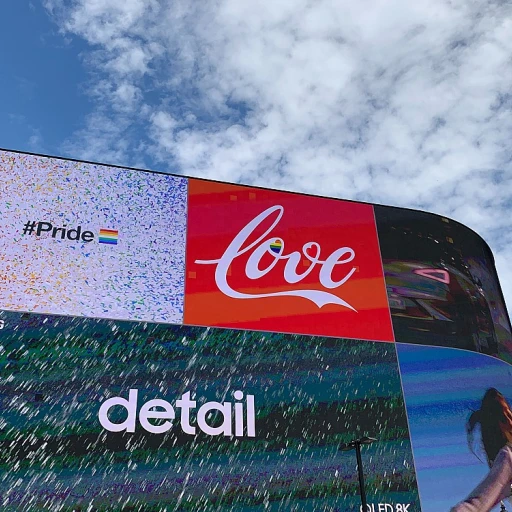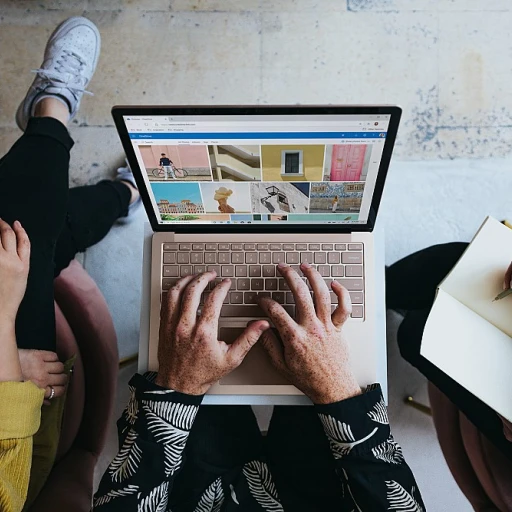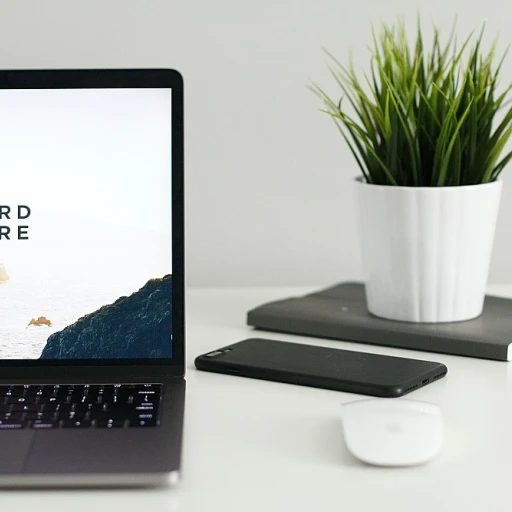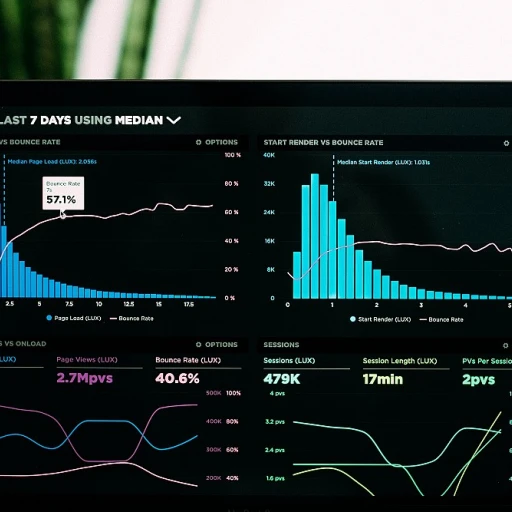
Understanding the Role of Micro Influencers in Digital Marketing
The Impact of Micro Influencers in Digital Marketing
In the rapidly evolving world of digital marketing, micro influencers have carved out a significant niche. Unlike their mega counterparts, micro influencers typically have smaller, yet highly engaged audiences. This unique position allows them to foster authentic connections with their followers, making them invaluable assets for brands looking to enhance their marketing strategies.
Brands are increasingly turning to micro influencers for their campaigns because these influencers often boast higher engagement rates. Their followers tend to trust their recommendations more than those of larger influencers, leading to more effective promotion of products and services. This is particularly evident on platforms like Instagram and TikTok, where visual content reigns supreme.
Why Brands Choose to Collaborate with Micro Influencers
Micro influencers are particularly appealing to brands in niches such as beauty and fashion. They offer a more targeted approach, allowing brands to reach specific demographics with precision. For instance, a beauty brand might work with a micro influencer who specializes in skincare, ensuring that the content resonates with a dedicated audience interested in such products.
Moreover, working with micro influencers can be more cost-effective compared to larger influencers. This affordability allows brands to allocate their marketing budgets more efficiently, often resulting in a better return on investment. It's a strategic move that many brands, from startups to established companies, are embracing.
Building Authentic Connections Through Social Media
One of the key advantages of collaborating with micro influencers is their ability to build authentic connections with their audience. This authenticity is crucial in today's marketing landscape, where consumers are increasingly skeptical of traditional advertising methods. By leveraging the trust that micro influencers have cultivated with their followers, brands can enhance their credibility and authority in the market.
As brands navigate the complexities of influencer marketing, understanding the role of micro influencers becomes essential. By integrating these small influencers into their campaigns, brands can achieve greater engagement and more meaningful interactions with their target audience. For more insights on crafting the perfect tone for B2B content in AI-driven SEO, you can explore this guide.
AI-Driven Insights for Identifying Ideal Micro Influencers
Unleashing the Potential of AI for Pinpointing Top Performers
The use of artificial intelligence in identifying the ideal micro influencers is revolutionizing influencer marketing. Brands are increasingly relying on advanced AI algorithms to sift through vast amounts of data across social media platforms like Instagram and TikTok. This data-driven approach is paramount for spotting influencers who perfectly match the brand’s ethos and target audience.
Micro influencers, with their highly engaged followers, represent a goldmine for brands that aim to tap into niche markets, particularly in sectors like beauty and fashion. These influencers, often labeled as small influencers, may not have a massive following, but they thrive in engagement rate—a crucial metric that brands value. AI ensures that brands can pinpoint those with the highest engagement rates, who would likely deliver the most significant returns in a campaign.
AI-Driven Tools in Action
Employing AI-driven tools allows brands to conduct a comprehensive analysis of influencers’ past collaborations, engagement patterns, and audience demographics. By integrating AI, brands can not only track the success indicators of influencers but also predict future trends in their engagement. This capability to forecast aligns perfectly with influencer marketing's dynamic nature.
As influencers continue to dominate the marketing strategies of various brands, AI tools help in identifying the influencers that work efficiently. Brands that are on the quest to collaborate with influencers who best resonate with their products need these insights to optimize decisions effectively.
Streamlining Collaboration
Once potential micro influencers are identified, brands can streamline the process of collaboration with AI. From understanding the type of content that garners the most engagement to setting parameters for potential posts, AI plays a crucial role. This is particularly beneficial for campaigns on platforms like Instagram, where the visual appeal and timing of posts can significantly influence engagement rates.
Ultimately, AI’s integration is not just about finding influencers but also about creating efficient and impactful influencer-brand collaborations. With the evolving landscape of digital marketing, leveraging AI is indispensable for brands aiming to maximize their reach with small influencers and ensure the success of their influencer marketing efforts.
Optimizing Content Strategy with AI for Better SEO
Leveraging AI for Content Precision and Engagement
In the ever-evolving landscape of influencer marketing, AI plays a crucial role in refining content strategies that cater to the target audience effectively. This is particularly essential when collaborating with micro influencers, who typically have a more niche and engaged following on social media platforms like Instagram or TikTok.
Micro influencers possess unique insights regarding their followers, making them valuable partners for brands looking to connect with specific audiences. However, the real challenge lies in creating content that resonates with those audiences while maximizing engagement rate. AI-driven tools can analyze data from influencers' past posts to provide brands with actionable insights, ensuring content is not only aligned with the audience's interests but also optimized for SEO.
Personalization and Authenticity Through AI
One of the significant advancements AI introduces to content creation is the ability to personalize and maintain authenticity in influencer collaborations. AI can help identify patterns in followers' interactions with previous campaigns or similar products. These insights assist in crafting messages that feel authentic and resonate with the community, which is paramount when marketing through influencers. Whether it's the beauty or fashion industry, the goal is to ensure that the products seamlessly integrate into the influencer's narrative without seeming forced.
Additionally, AI offers predictive analytics, enabling brands to anticipate content trends and adjust their strategies accordingly. By foreseeing what kind of content might perform well across social media, brands that work with influencers can stay ahead of the competition and maintain engagement.
Ensuring Optimal Timing and Platform Selection
AI doesn't just revolutionize content creation; it also optimizes when and where the content should be shared. Understanding the best time to post on each platform, such as Instagram, is crucial for reaching the maximum number of followers and achieving higher engagement rates. Using AI-powered insights, brands can schedule posts to coincide with peak engagement times, which is particularly beneficial for small influencers who rely on organic reach.
An additional advantage is the ability to tailor content specifically for each social media platform. Instagram and TikTok, for example, might require different approaches to ensure the content aligns with the users' expectations on those platforms. By adapting the campaign's strategy based on platform-specific preferences, brands can enhance their overall visibility and success.
Implementing these AI-driven strategies not only strengthens the collaboration with micro influencers but also ensures the content strategy is optimized for better engagement and SEO. For those seeking more insights into effective SEO practices, exploring the most engaging strategies for social media can provide valuable guidance.
Measuring Campaign Success: AI in Analytics and Reporting
Enhancing Campaign Success with AI-Powered Analytics
In the ever-evolving world of influencer marketing, understanding the impact of campaigns with micro influencers is essential for brands aiming to optimize their strategies. AI offers a robust solution for measuring and analyzing campaign success, particularly when collaborating with influencers on Instagram, TikTok, and other social media platforms. AI technologies enable brands that work with small influencers to delve deeper into the engagement rates and reach of their campaigns. By leveraging AI-driven tools, brands can accurately track the performance of content shared by micro influencers. This involves assessing metrics such as followers' engagement, content reach, and overall audience reaction. Moreover, AI can assist in understanding the demographic and psychographic characteristics of an influencer's audience. For brands in sectors like beauty and fashion, where detailed understanding of target audience preferences is crucial, AI helps tailor marketing efforts to engage effectively. This not only enhances the campaign's efficacy but also ensures that the brand's products resonate well with the target market.Challenges and Performance Evaluation
Despite the advantages of AI in analytics, integrating artificial intelligence with SEO for influencer campaigns presents certain challenges. The varied engagement rates observed on different platforms — from Instagram to TikTok — necessitate a nuanced approach to data analysis. Additionally, ensuring data privacy and compliance while collecting and processing social media insights remains a critical concern. To address these challenges, brands must adopt best practices for AI deployment and continuously refine their strategies. This involves regular reviews of AI-powered analytics and adapting to new trends in influencer marketing. By doing so, brands can stay ahead of the curve and maximize the ROI from their influencer partnerships.Challenges in Integrating AI with SEO for Micro Influencer Campaigns
Overcoming Obstacles in Leveraging AI for SEO within Influencer Campaigns
Integrating AI in SEO strategies for campaigns that collaborate with micro influencers on platforms like Instagram can present unique challenges. Brands aiming to drive engagement rates through these digital initiatives must navigate various hurdles.- Complexity in Data Integration: One significant challenge lies in effectively incorporating the vast array of data sourced from diverse social media platforms. Brands working with small influencers need to ensure they are harnessing relevant data points to boost marketing campaigns.
- Platform-Specific Algorithms: Each social media platform, whether it's Instagram or TikTok, operates with its own set of algorithms affecting visibility. Micro influencer collaborations rely heavily on understanding these nuances to maximize content engagement and optimize reach.
- Balancing Authenticity and AI: Influencers possess a unique voice that resonates with their followers. The integration of AI in marketing efforts must respect and retain this authenticity. Brands must be cautious that the AI-driven content remains genuine and not overly formulaic.
- Resource Allocation: Implementing AI solutions can sometimes be resource-intensive, especially for influencer campaigns in the highly competitive beauty and fashion sectors. Paradoxically, while AI promises efficiency, the initial setup demands significant manpower and investment from brands.
- Keeping Up with Evolving Technologies: As AI technologies grow more sophisticated, brands must continuously adapt to stay ahead in the influencer marketing game. This requires ongoing education and training to keep up with the latest trends.
Future Trends: AI and the Evolving Landscape of Influencer Marketing
The Rise of AI in Influencer Ecosystems
As artificial intelligence continues to evolve, its influence within the realm of influencer marketing, especially when collaborating with micro influencers, is becoming increasingly significant. Brands that work with small influencers are turning to AI-driven technologies to streamline their campaigns, maximize engagement rates, and gain deeper insights into social media interactions.With platforms such as Instagram and TikTok continually changing their algorithms, influencers and brands must adapt their strategies dynamically. AI technologies can predict these shifts and provide valuable data that can influence campaign content decisions.
Enhanced Content Personalization
AI's ability to process vast amounts of data quickly allows brands to tailor their messaging more effectively in the influencer ecosystem. Micro influencers, who generally have more niche audiences, can benefit from this technology by offering more personalized content to their followers. This level of customization leads to better engagement rates, enhancing the overall effectiveness of influencer marketing campaigns.Predicted AI Trends in Influencer Marketing
The future of influencer marketing, particularly with micro influencers, is likely to see AI playing an integral role in selection processes, content optimization, and analytics. We might observe AI tools that can dynamically adjust engagement strategies based on real-time data or predict the trajectory of a campaign's success, reducing the risks associated with marketing investments.Additionally, beauty and fashion brands, often at the forefront of innovative marketing tactics, are expected to integrate AI more heavily into their campaigns, seeking precision with social media strategies for a broader reach and impact.













